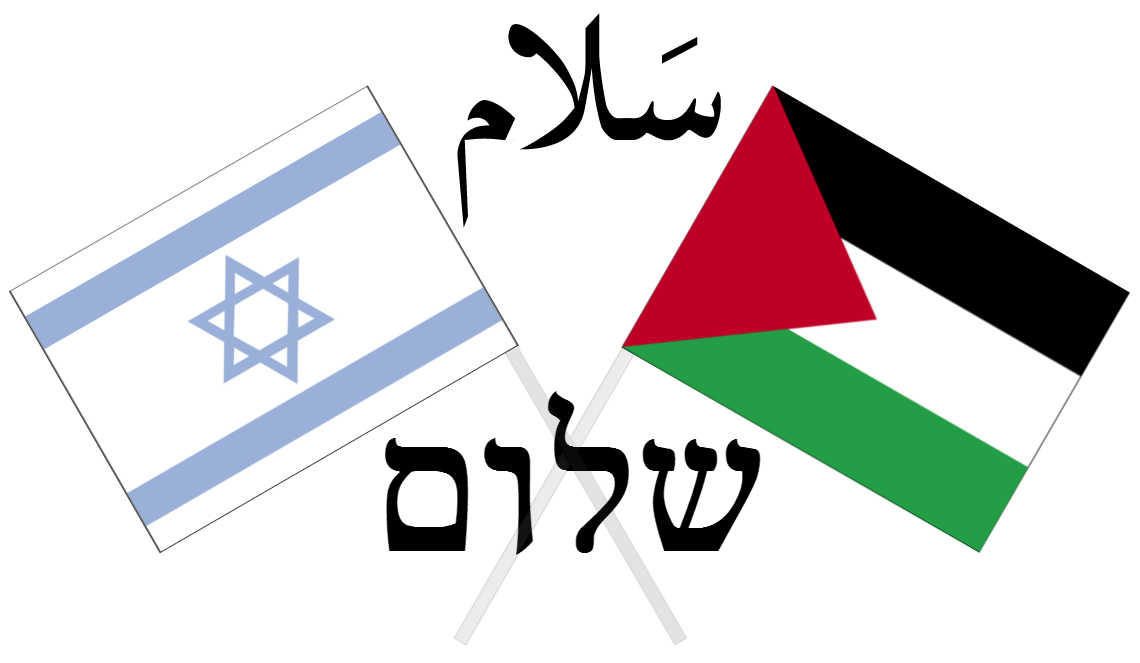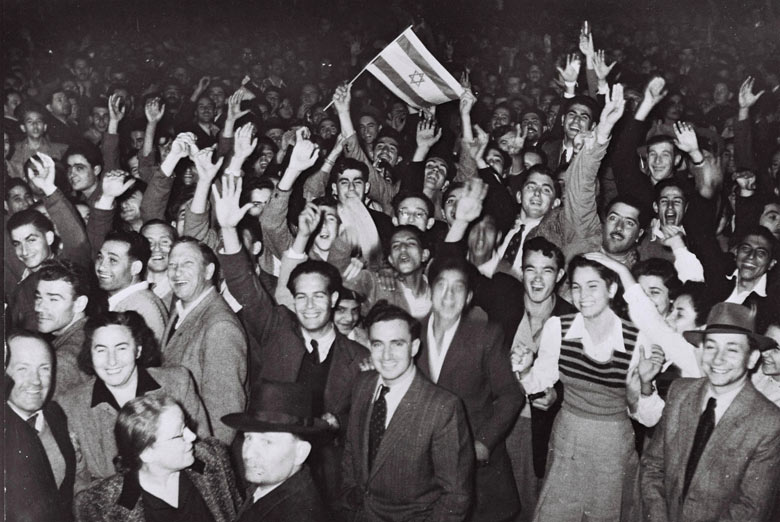Source(google.com.pk)
Israel Palestine Partition Biography
Following World War II, escalating hostilities between Arabs and Jews over the fate of Palestine and between the Zionist militias and the British army compelled Britain to relinquish its mandate over Palestine. The British requested that the recently established United Nations determine the future of Palestine. But the British government’s hope was that the UN would be unable to arrive at a workable solution, and would turn Palestine back to them as a UN trusteeship. A UN-appointed committee of representatives from various countries went to Palestine to investigate the situation. Although members of this committee disagreed on the form that a political resolution should take, there was general agreement that the country would have to be divided in order to satisfy the needs and demands of both Jews and Palestinian Arabs. At the end of 1946, 1,269,000 Arabs and 608,000 Jews resided within the borders of Mandate Palestine. Jews had acquired by purchase 6 to 8 percent of the total land area of Palestine amounting to about 20 percent of the arable land.
On November 29, 1947, the UN General Assembly voted to partition Palestine into two states, one Jewish and the other Arab. The UN partition plan divided the country in such a way that each state would have a majority of its own population, although some Jewish settlements would fall within the proposed Palestinian state and many Palestinians would become part of the proposed Jewish state. The territory designated to the Jewish state would be slightly larger than the Palestinian state (56 percent and 43 percent of Palestine, respectively) on the assumption that increasing numbers of Jews would immigrate there. According to the UN partition plan, the area of Jerusalem and Bethlehem was to become an international zone.
Most Arabs regarded the proposed Jewish state as a settler colony.
Publicly, the Zionist leadership accepted the UN partition plan, although they hoped somehow to expand the borders allotted to the Jewish state. The Palestinian Arabs and the surrounding Arab states rejected the UN plan and regarded the General Assembly vote as an international betrayal. Some argued that the UN plan allotted too much territory to the Jews. Most Arabs regarded the proposed Jewish state as a settler colony and argued that it was only because the British had permitted extensive Zionist settlement in Palestine against the wishes of the Arab majority that the question of Jewish statehood was on the international agenda at all.
Fighting began between the Arab and Jewish residents of Palestine days after the adoption of the UN partition plan. The Arab military forces were poorly organized, trained and armed. In contrast, Zionist military forces, although numerically smaller, were well organized, trained and armed. By the spring of 1948, the Zionist forces had secured control over most of the territory allotted to the Jewish state in the UN plan.
On May 15, 1948, the British evacuated Palestine, and Zionist leaders proclaimed the state of Israel. Neighboring Arab states (Egypt, Syria, Jordan and Iraq) then invaded Israel claiming that they sought to “save” Palestine from the Zionists. In fact, the Arab rulers had territorial designs on Palestine and were no more anxious to see a Palestinian Arab state emerge than the Zionists. During May and June 1948, when the fighting was most intense, the outcome of this first Arab-Israeli war was in doubt. But after arms shipments from Czechoslovakia reached Israel, its armed forces established superiority and conquered territories beyond the UN partition plan borders of the Jewish state.
In 1949, the war between Israel and the Arab states ended with the signing of armistice agreements. The country once known as Palestine was now divided into three parts, each under separate political control. The State of Israel encompassed over 77 percent of the territory. Jordan occupied East Jerusalem and the hill country of central Palestine (the West Bank). Egypt took control of the coastal plain around the city of Gaza (the Gaza Strip). The Palestinian Arab state envisioned by the UN partition plan was never established.










Israel Palestine Partition Biography
Following World War II, escalating hostilities between Arabs and Jews over the fate of Palestine and between the Zionist militias and the British army compelled Britain to relinquish its mandate over Palestine. The British requested that the recently established United Nations determine the future of Palestine. But the British government’s hope was that the UN would be unable to arrive at a workable solution, and would turn Palestine back to them as a UN trusteeship. A UN-appointed committee of representatives from various countries went to Palestine to investigate the situation. Although members of this committee disagreed on the form that a political resolution should take, there was general agreement that the country would have to be divided in order to satisfy the needs and demands of both Jews and Palestinian Arabs. At the end of 1946, 1,269,000 Arabs and 608,000 Jews resided within the borders of Mandate Palestine. Jews had acquired by purchase 6 to 8 percent of the total land area of Palestine amounting to about 20 percent of the arable land.
On November 29, 1947, the UN General Assembly voted to partition Palestine into two states, one Jewish and the other Arab. The UN partition plan divided the country in such a way that each state would have a majority of its own population, although some Jewish settlements would fall within the proposed Palestinian state and many Palestinians would become part of the proposed Jewish state. The territory designated to the Jewish state would be slightly larger than the Palestinian state (56 percent and 43 percent of Palestine, respectively) on the assumption that increasing numbers of Jews would immigrate there. According to the UN partition plan, the area of Jerusalem and Bethlehem was to become an international zone.
Most Arabs regarded the proposed Jewish state as a settler colony.
Publicly, the Zionist leadership accepted the UN partition plan, although they hoped somehow to expand the borders allotted to the Jewish state. The Palestinian Arabs and the surrounding Arab states rejected the UN plan and regarded the General Assembly vote as an international betrayal. Some argued that the UN plan allotted too much territory to the Jews. Most Arabs regarded the proposed Jewish state as a settler colony and argued that it was only because the British had permitted extensive Zionist settlement in Palestine against the wishes of the Arab majority that the question of Jewish statehood was on the international agenda at all.
Fighting began between the Arab and Jewish residents of Palestine days after the adoption of the UN partition plan. The Arab military forces were poorly organized, trained and armed. In contrast, Zionist military forces, although numerically smaller, were well organized, trained and armed. By the spring of 1948, the Zionist forces had secured control over most of the territory allotted to the Jewish state in the UN plan.
On May 15, 1948, the British evacuated Palestine, and Zionist leaders proclaimed the state of Israel. Neighboring Arab states (Egypt, Syria, Jordan and Iraq) then invaded Israel claiming that they sought to “save” Palestine from the Zionists. In fact, the Arab rulers had territorial designs on Palestine and were no more anxious to see a Palestinian Arab state emerge than the Zionists. During May and June 1948, when the fighting was most intense, the outcome of this first Arab-Israeli war was in doubt. But after arms shipments from Czechoslovakia reached Israel, its armed forces established superiority and conquered territories beyond the UN partition plan borders of the Jewish state.
In 1949, the war between Israel and the Arab states ended with the signing of armistice agreements. The country once known as Palestine was now divided into three parts, each under separate political control. The State of Israel encompassed over 77 percent of the territory. Jordan occupied East Jerusalem and the hill country of central Palestine (the West Bank). Egypt took control of the coastal plain around the city of Gaza (the Gaza Strip). The Palestinian Arab state envisioned by the UN partition plan was never established.
Israel Palestine Partition

Israel Palestine Partition

Israel Palestine Partition

Israel Palestine Partition

Israel Palestine Partition

Israel Palestine Partition

Israel Palestine Partition

Israel Palestine Partition

Israel Palestine Partition

Israel Palestine Partition

Israel Palestine Partition
No comments:
Post a Comment